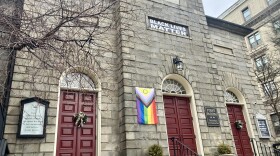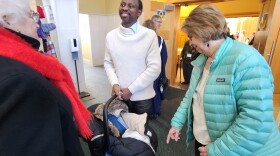The redevelopment of State Pier in New London has run into more issues clearing underwater obstructions that could delay its transformation into a hub for the offshore wind industry.
The Connecticut Port Authority, which is overseeing the project, was told Tuesday by Interim Executive Director Ulysses Hammond that they needed money for “pile driving, extra demolition and electrical equipment costs.” The cost to deal with the additional work is estimated by the firm managing the project, AECOM, to be just over $7 million.
David Kooris, chair of the Connecticut Port Authority board, said they intend to pay for the additional work without asking for more money from the state.
“Use the remaining contingency,” Kooris said. “Use the funds that were freed up from soft costs tightening and defer five years of lease payments — the last five years, 2028 to 2033 — to future operating budgets, freeing up the capital necessary to execute this agreement without any additional state dollars.”
The port authority will use its contingency fund to pay for the additional work. They will also use lease payments from another account obtained by renting a property next to the pier.
The total cost of the project is $255 million — more than double the original estimate in 2019.
Kooris added that after this, they are out of options if they run into more trouble.
“We don’t have access to any more funds beyond this point,” he said. “We have exhausted our available funds as approved and authorized and allocated to us by the state and we are proposing to take a big move in taking on that obligation for those rent payments in the future. We don’t have any other tools like that available to us beyond this. ”
Copyright 2022 WSHU. To see more, visit WSHU. 9(MDExNDI3NjUzMDEzNjkzMTgzNTExNDFlYQ004))



